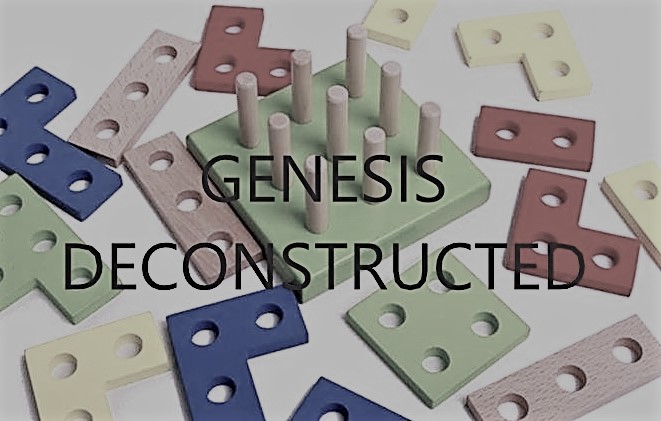In the table below, we see that the Targum’s substitute att אתת for ishshah אשה in the Genesis Creation Account.
In Fuerst’s Lexicon p. 157, it states that ishshah is equivalent to ashsh אשש, and Davies Lexicon p. 71 & 73 indicates that att אתת is the Chaldee form of the Hebrew ashsh אשש. In Gesenius’s Hebrew Lexicon p. 84, אשש means ‘found, establish, show yourselves firm’. In Fuerst’s Lexicon ** p. 167, and Davies’ Lexicon p. 71, אשש means 1 ‘to be powerful, strong, to make strong, firm, to establish’, derivitives include the ish איש (a form of esh אש), or 2 ‘to glow, to burn’, Fuerst’s Lexicon indicates it is comp. Aram. את, derivatives are אשה,אש, and אשת.
In my analysis of ishshah אשה in Fact #145, I concluded it means ‘mighty toward fire’, because it is the same as ishsheh אשה (Strong’s 801 65 occurrences) that means ‘offering by fire, made by fire’, that in Numbers 28:9 has a sweet aroma to Yahweh, and the root is the noun esh אש (Strong’s 784) that means ‘a fire’, with the he ה suffix that ‘expresses the concept of movement toward’, thus ishshah and ishsheh mean ‘toward fire’. Since Yahweh יהוה is like a consuming fire (Exodus 3:2 & 24:17), it isn’t a stretch to conclude ishshah and ishsheh mean ’mighty toward Yahweh’.
The Lexicon’s give the traditional meaning for ishshah אשה as ‘woman, wife’, which simply identifies a female personage, and fails to encapsulate her power and close relationship with Yahweh. This broader meaning is found in Davies’ Lexicon p. 66, where it states that ishshah אשה also means ‘to be firm’, and ‘fig. to heal’, in Gesenius’s Hebrew Lexicon p. 77-8, where it says ishshah אשה also means ‘their fire’, or ‘an offering made by fire . . . means to friendly relations betw. God & man’, or ‘support’ (אשיותיה only found in Jer 50:15 where it is translated ‘her foundation(s)/pillars’), and in Fuerst’s Lexicon p. 157, where it says that ishshah אשה also means ‘to be firm, close, firmly fitted together’. It is obvious that both ishshah and att were translated ‘woman’ or ‘wife’ to support the traditional account that the female was created from and for the male, disquising her true nature.
In the TO, the basic form of ishshah is אתתא in Gen 2:22, 23, 3:1, 4, 6, 13 x 2, & 15, with the aleph א suffix that in Aramaic indicates the possessive ‘our’. When created in Gen 2:22 Yahweh gods called her ‘our mighty toward fire’, then in Gen 2:23 Adam and Satan do the same, perhaps revealing a battle for the heart of the ‘mighty toward fire’. The ‘serpent’, Adam and Satan, claim possession in Gen 3:1, and precede to trick her into breaking Yahweh’s command to not eat from the tree of knowledge of good and evil. In Gen 3:2, 12 & 16 the yod after the aleph in איתתא may indicate a corruption of the female (however ishshah in the ST doesn’t change form in these verses) , after which Yahweh gods call her ‘your mighty fire’ אתתך in Gen 3:17 and Adam and Eve leave the garden of Eden, no longer with Yahweh gods to provide for and protect them.
The forms in which att אתת is found in the Samaritan Targum on Tanakh.info, אתה in Gen 2:22, אתהא in Gen 2:23, אתאה in Gen 3:1, 15 & 16, are not found in any Chaldee Lexicon, and they do not match the forms found Samaritanische Pentateuch version die Genesis in der Hebraischen edited by Moritz Heidenheim, where all occurrences are in the form אתתה except Gen 3:17 which is in the form אתתך, with the possessive pronoun ‘your’, on which all the text are in agreement. As a result, we can’t be certain whether the text should contain the possessive prefix ‘his’ in Gen 2:24, 25, 3:8, 20, 21, & 4:1, or not.
In Gen 3:20 of the HB and TO, Adam ‘called (qara קרא)’ her (ishshah/att translated ‘wife’ in this verse) ‘life-giver (chavvah חוה translated ‘Eve’)’, but in the ST, Adam ‘cried/lamented/complained (zaaq זעק)’ her appointed name ‘life-giver’. The word qara, makes it appear that Adam was a god, calling creation into existence the way the gods (elohim) did in Gen 1:5, 8, & 10, but zaaq reveals that Adam was upset with the females power to create life, a more likely scenario.
From the beginning of time, the fact that females have the ability to bear offspring has caused men great angst. Procreation – carrying on their lineage is important to many men, especially powerful ones who desire an heir, but before the advent of DNA testing, they could never be 100% certain a child was theirs – a rather dis-empowering state of affairs.
Discover more from Genesis Deconstructed
Subscribe to get the latest posts sent to your email.
